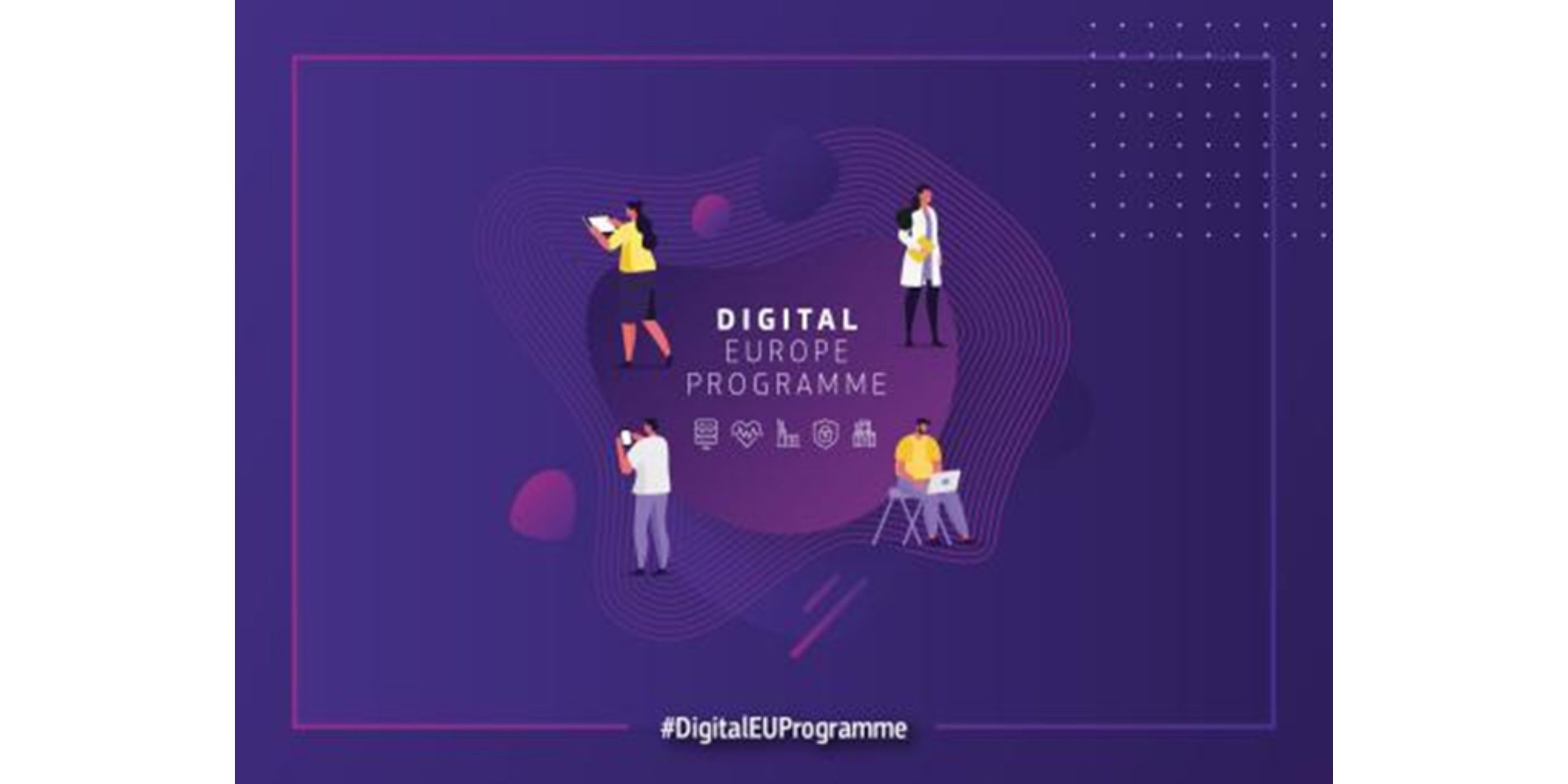The European Commission has adopted the Digital Europe Programme Work Programme for 2023-2024.
The Commission has adopted two multiannual work programmes for the Digital Europe Programme, outlining the objectives and specific topic areas that will receive a total of €1.284 billion in funding, out of which €553 million is available in 2023. These work programmes include strategic investments that will be instrumental in making this Europe’s Digital Decade. The Digital Europe Programme aims to bolster Europe’s technological sovereignty and bring digital solutions to market for the benefit of citizens, public administrations, and businesses while contributing to the objectives of the European Green Deal
Main DEP Work Programme
The main Work Programme is worth €909.5 million for the period of 2023 and 2024 and aims to ensure the continuation and evolution of activities that started under the 2021-2022 budget. As such, it reinforces EU critical digital capacities by focusing on the key areas of climate and environment protection technology, data, AI, cloud, cybersecurity, advanced digital skills, and deployment for the best use of these technologies (such as blockchain, interoperable digital public services solutions and reference framework addressing urgent needs in energy consumption).
One example of projects to be supported include the rollout of common data spaces in strategic areas such as cultural heritage, tourism, language, energy, manufacturing, agriculture, law enforcement, and health that will help cross-border data sharing for businesses, including SMEs, start-ups, and the public sector. This is being done as part of the European strategy for data, which aims at creating a single market for data that will ensure Europe’s global competitiveness and data sovereignty.
Another example will be the facilitation of the faster adoption of AI technologies in Europe, in particular its usage by companies and SMEs, the development of virtual reality technologies for cities and communities, and a platform for advanced virtual human twin models for healthcare.
The main work programme will also invest in addressing climate and environment protection challenges through supporting the next phase in the evolution of the digital twin of the Earth – Destination Earth, establishing a green deal data space and preparing a Digital Product Passport to enable circular economy.
Other supported projects will see the set-up and delivery of higher education courses in advanced digital technologies and reinforcing skills in particular in semiconductors and cybersecurity areas. Moreover the work programme will see calls for the set-up and continuous maintenance of digital public services and supporting cross-border interoperability and solutions in support of the public administrations (e.g. European Digital Identity).
The main work programme will also fund projects in the areas of digitalisation of justice and consumer protection, making the internet a safer environment for kids and young people, and fighting disinformation through the European Digital Media Observatory (EDMO);
It will also provide support to digital start-ups and SMEs through the Investment Platform for Strategic Digital Technologies under the InvestEU program, with a focus on cybersecurity.
Cybersecurity Work Programme
Alongside this main work programme, the Commission published one further specific work programme focusing on cybersecurity, with a budget of €375 million for the period of 2023 – 2024 to enhance the EU collective resilience against cyber threats, to be implemented by the European Cybersecurity Competence Centre in support to the cyber security strategy and cyber security-related regulations.
This cybersecurity work programme will, for example, support building capacities of national and cross-border Security Operation Centres in order to create state-of-the-art threat detection and cyber incident analysis ecosystem. It will also allow for cybersecurity capacity building through National Coordination Centres, which will aim at fostering cross-border cooperation and at the preparation of joint actions as defined in the European Cybersecurity Industrial, Technology and Research Competence Centre and Network regulation.
It will also fund projects that support industry, in particular SMEs and start-ups, in complying with cybersecurity regulatory requirements, especially the NIS2 implementation, or requirements concerning the proposed Cyber Resilience Act.
Next Steps
The first calls for this cybersecurity work programme will be published this spring, with more to come after the summer. The calls are open to businesses, public administrations, and other entities from the EU Member States, EFTA/EEA countries, and countries associated to the Digital Europe Programme.
Background
The Digital Europe Programme is the first funding programme of the EU focused on bringing digital technology to businesses and citizens. With a planned total budget of €7.5 billion over 7 years, it will accelerate the economic recovery and shape the digital transformation of Europe’s society and economy, bringing benefits in particular to small and medium-sized businesses. The Digital Europe Programme is implemented by multiannual work programmes.
The Digital Europe Programme complements investments under other EU programmes, such as the Horizon Europe, EU4Health, InvestEU, the Connecting Europe Facility, as well as investments under the Recovery and Resilience Facility. The Regulation establishing the Digital Europe Programme was published in the Official Journal of the EU on 11 May 2021, entered into force on the same day, and has applied retroactively since 1 January 2021.
Source: European Commission| News (https://bit.ly/3LUanEg)
